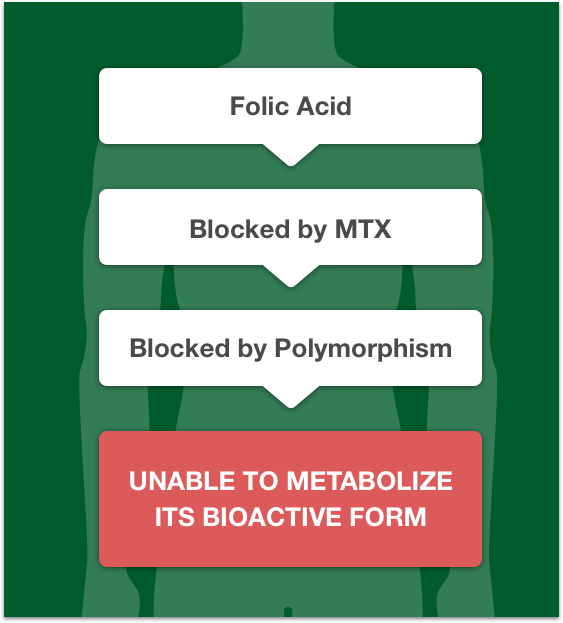
For the Clinical Dietary Management of the Metabolic Effects
of Methotrexate (MTX) Therapy for Rheumatoid Arthritis
Rheumatoid arthritis (RA) is an autoimmune disease that causes the body’s immune system to mistakenly attack the joints, resulting in inflammation of the joint lining. This inflammation of the joint lining (called the synovium) can cause pain, stiffness, swelling and redness in and around the joints, especially in the hands and feet. If left untreated, it can cause damage to cartilage and bones resulting in loss of normal movement and joint deformity, which can negatively impact quality of life. Because RA occurs throughout the body, other organs such as the skin, heart, lungs, and eyes may also be affected.

While there are many treatment options for patients living with Rheumatoid Arthritis (RA), the most common is methotrexate (MTX), which is classified as a DMARD (Disease-Modifying Anti-Rheumatic Drug). MTX is an effective anti-inflammatory, but it can deplete the body’s much needed supply of folate, an essential class of vitamins, which may lead to MTX-induced side effects.

When the body is unable to process folic acid and remains folate-deficient, the following symptoms may occur:
- Nausea
- Fatigue
- Flu-Like Symptoms
- Stomach Pain
- Mouth Sores
- Hair Loss
- Elevated Liver Enzyme Levels
- Low Number of Blood Cells (Leukopenia and Anemia)
Rheumate is the perfect companion to help reduce MTX-induced side-effects because it contains the bioactive folate the body needs.





